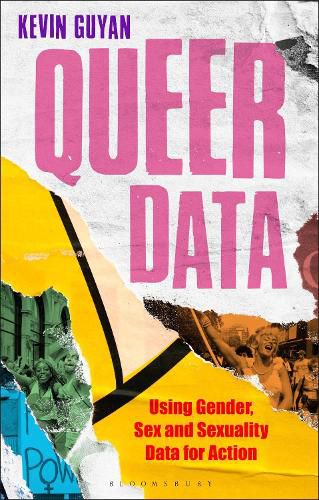Readings Newsletter
Become a Readings Member to make your shopping experience even easier.
Sign in or sign up for free!
You’re not far away from qualifying for FREE standard shipping within Australia
You’ve qualified for FREE standard shipping within Australia
The cart is loading…






Data has never mattered more. Our lives are increasingly shaped by it and how it is defined, collected and used. But who counts in the collection, analysis and application of data?
This important book is the first to look at queer data - defined as data relating to gender, sex, sexual orientation and trans identity/history. The author shows us how current data practices reflect an incomplete account of LGBTQ lives and helps us understand how data biases are used to delegitimise the everyday experiences of queer people.
Guyan demonstrates why it is important to understand, collect and analyse queer data, the benefits and challenges involved in doing so, and how we might better use queer data in our work. Arming us with the tools for action, this book shows how greater knowledge about queer identities is instrumental in informing decisions about resource allocation, changes to legislation, access to services, representation and visibility.
$9.00 standard shipping within Australia
FREE standard shipping within Australia for orders over $100.00
Express & International shipping calculated at checkout
Data has never mattered more. Our lives are increasingly shaped by it and how it is defined, collected and used. But who counts in the collection, analysis and application of data?
This important book is the first to look at queer data - defined as data relating to gender, sex, sexual orientation and trans identity/history. The author shows us how current data practices reflect an incomplete account of LGBTQ lives and helps us understand how data biases are used to delegitimise the everyday experiences of queer people.
Guyan demonstrates why it is important to understand, collect and analyse queer data, the benefits and challenges involved in doing so, and how we might better use queer data in our work. Arming us with the tools for action, this book shows how greater knowledge about queer identities is instrumental in informing decisions about resource allocation, changes to legislation, access to services, representation and visibility.